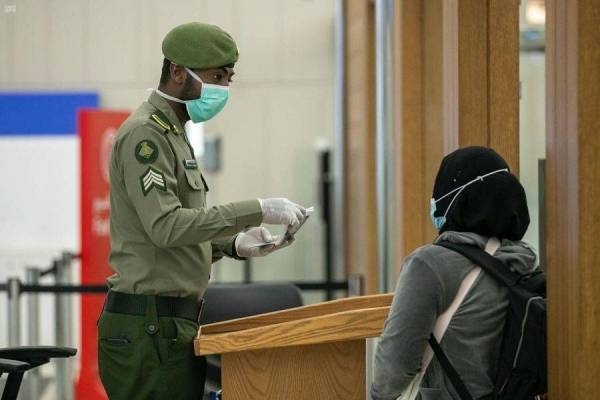
JEDDAH — On Sunday, March 14, 2021, the new Labor Reform Initiative (LRI) meant to “improve the contractual relationship” for workers in the Kingdom’s private sector, will come into force according to the announcement by the Ministry of Human Resources and Social Development (MHRSD).
The initiative is a fundamental shift in the Saudi labor market and the relationship between the employer and expatriate workers.
According to information Okaz has obtained, the initiative provides several services, including job transfer (transfer to another employer), exit/reentry, and final exit that are available via Absher and Qiwa platforms. The initiative applies to all expatriate workers in private sector establishments.
The job mobility service allows mobility of expatriate workers between private sector establishments within specific controls that take into account the rights of the parties to the contractual relationship and the terms of the contract between the employer and the expatriate worker. There is no additional fee for the job mobility service via the Qiwa platform.
The conditions for the worker’s eligibility to benefit from the employment mobility service stipulate that the worker should be among the expatriate professionals who are subject to the labor law. He must complete his first year with the current employer from his first entry into the Kingdom.
The worker should have a documented work contract, and has a job offer submitted through the Qiwa platform by the new employer. At the same time, the new employer issues a notification to the current employer, requesting transfer of the worker’s service, while taking into account the notice period.
The initiative allows the expatriate worker to move to another employer without conditions in specific cases, including, the absence of a notarized work contract, taking into account the deadline for documenting the contract, which is three months from the worker’s entry into the country, nonpayment of the worker"s salary for three consecutive months, and the employer"s absence due to travel, or imprisonment or death.
The initiative also allows the expatriate worker to move to another employer without conditions in specific cases, including the expiry of the expatriate’s work permit or residence permit (iqama), in the event the worker reports a commercial cover-up (tasattur) against the employer, provided that he is not participating in the concealment (tasattur), the existence of a labor dispute between the worker and employer, and the employer shows tardiness in attending the court’s litigation or amicable settlement sessions.
The initiative allows the worker to benefit from the “final exit” and “exit/re-entry” services via Absher platform automatically during the validity period of the work contract or after the end of the contract. The initiative excludes domestic workers.
In previous statements, the Undersecretary of the Ministry of Human Resources for Inspection and Development of Work Environment Sattam Al-Harbi had stressed that the initiative explains that it is not the employer who decides that the expatriate worker can depart from the Kingdom’s territories when he finds a job in another establishment.
Furthermore, the worker’s freedom to travel to his country cannot be restricted in case he owes his employer some dues. Rather, the employer must seek his rights through the judicial authorities. There is no sponsorship (kafalah) but a contractual relationship between the establishment and the worker.
Al-Harbi further said that the contractual relationship between the worker and the employer is governed by the work contract that is subject to the regulation and procedures governing it, as agreed upon in the same contract with its penal terms. When there is a disagreement on the terms, then the dispute shall be referred to the labor courts to decide on.
He pointed out that the worker"s obligations and the procedures for moving from one establishment to another are the same, whether the worker is a citizen or expatriate.
The worker shall be bound by the procedures for the handing over and receipt of the custody, and the employer shall lay down his precautions pertaining to hand over of the custody to his worker, but the worker’s freedom to travel should not be restricted based on the custody order. In this regard, the unified contract has abundant latitude and is not restricted by conditions.
However, it becomes binding on the two parties if it is approved by both of them. In addition, it should be in line with the mechanism for documenting contracts related to the Absher system. As to other commitments, the employer has the right to claim them via the relevant authorities.
Al-Harbi stressed that the worker has the right to obtain a “final exit” visa or “exit/re-entry” visa in case the contract comes to an end. This should not prevent the worker from shifting to another establishment before the elapse of 60 days, and the worker must leave the Kingdom"s territories if he does not find another establishment to sign a contract with and move to it, within the specified period.












